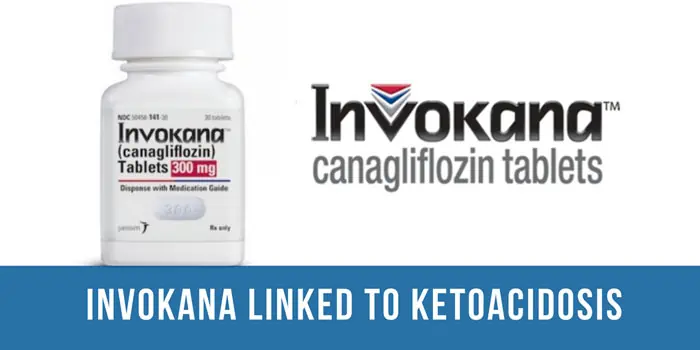Invokana Linked to Kidney Damage, Diabetic Ketoacidosis
- Last Updated: August 13th, 2023

Attorney Jessica Paluch-Hoerman, founder of TruLaw, has over 28 years of experience as a personal injury and mass tort attorney, and previously worked as an international tax attorney at Deloitte. Jessie collaborates with attorneys nationwide — enabling her to share reliable, up-to-date legal information with our readers.
Legally Reviewed
This article has been written and reviewed for legal accuracy and clarity by the team of writers and legal experts at TruLaw and is as accurate as possible. This content should not be taken as legal advice from an attorney. If you would like to learn more about our owner and experienced injury lawyer, Jessie Paluch, you can do so here.
Fact-Checked
TruLaw does everything possible to make sure the information in this article is up to date and accurate. If you need specific legal advice about your case, contact us by using the chat on the bottom of this page. This article should not be taken as advice from an attorney.
Invokana Linked to Kidney Damage, Diabetic Ketoacidosis
Invokana was introduced to the U.S. market in March 2013 and quickly became the go-to type 2 diabetes treatment, although the safety of the medication became a point of contention relatively quickly.

Table of Contents
What is Invokana?
Invokana is a SGLT2 inhibitor that is prescribed along with diet and exercise to help improve glycemic control and lower blood sugar in adult patients with type 2 diabetes mellitus.
If left untreated, type 2 diabetes can lead to a number of serious health problems, including:
- Blindness
- Nerve damage
- Kidney failure
- Heart disease
- Stroke
- High blood pressure
In May 2015, the FDA warned the public that canagliflozin (Invokana), dapagliflozin (Farxiga), and empagliflozin (Jardiance) may lead to ketoacidosis, a serious condition where the body produces high levels of blood acids called ketones that may require hospitalization and could lead to death.
The FDA warned patients to pay close attention for signs of Ketoacidosis and to seek medical attention if they experienced any signs.
Symptoms of Diabetic Ketoacidosis Include
- Difficulty Breathing
- Nausea
- Vomiting
- Abdominal Pain
- Confusion
- Unusual Fatigue
- Sleepiness
Following the warning issued in May 2015, the FDA reviewed the FDA Adverse Event Reporting System and identified 73 cases of ketoacidosis in patients with type 1 or type 2 diabetes.
As a result, the FDA followed up with a label change for Invokana, Farxiga and Jardiance in December 2015 which noted the risk of ketoacidosis.
In addition to diabetic ketoacidosis, there are several other serious and even potentially fatal side effects associated with Invokana, Farxiga and Jardiance, including:
- Myocardial infarction (heart attack) – the irreversible death of cells within the heart caused by a restriction of blood.
- Kidney damage and failure – the kidneys stop functioning properly or at all, and waste products, fluids, and electrolytes build up in the body, causing weakness, shortness or breath, lethargy, confusion, abnormal heart rhythm, and sudden death.
Concerns About Safety of Invokana Continue to be Raised
In January 2016, the Institute for Safe Medication Practices released a report that highlighted potential concerns regarding a link between Invokana and kidney damage.
According to the report, both prescription volume and adverse drug event reports are increasing rapidly for canagliflozin (Invokana), dapagliflozin (Farxiga), and empagliflozin (Jardiance).
Diabetic Ketoacidosis Lawsuits Move Forward
Lawsuits on behalf of individuals diagnosed with diabetic ketoacidosis continue to be filed against the manufacturers of the drugs, Janssen Pharmaceuticals, AstraZeneca and Boehringer Ingelheim.
Plaintiffs allege that they were not warned of the serious risk involved with taking Invokana, Farxiga or Jardiance.

Managing Attorney & Owner
With over 25 years of legal experience, Jessica Paluch-Hoerman is an Illinois lawyer, a CPA, and a mother of three. She spent the first decade of her career working as an international tax attorney at Deloitte.
In 2009, Jessie co-founded her own law firm with her husband – which has scaled to over 30 employees since its conception.
In 2016, Jessie founded TruLaw, which allows her to collaborate with attorneys and legal experts across the United States on a daily basis. This hypervaluable network of experts is what enables her to share the most reliable, accurate, and up-to-date legal information with our readers!
Here, at TruLaw, we’re committed to helping victims get the justice they deserve.
Alongside our partner law firms, we have successfully collected over $3 Billion in verdicts and settlements on behalf of injured individuals.
Would you like our help?
At TruLaw, we fiercely combat corporations that endanger individuals’ well-being. If you’ve suffered injuries and believe these well-funded entities should be held accountable, we’re here for you.
With TruLaw, you gain access to successful and seasoned lawyers who maximize your chances of success. Our lawyers invest in you—they do not receive a dime until your lawsuit reaches a successful resolution!
AFFF Lawsuit claims are being filed against manufacturers of aqueous film-forming foam (AFFF), commonly used in firefighting.
Claims allege that companies such as 3M, DuPont, and Tyco Fire Products failed to adequately warn users about the potential dangers of AFFF exposure — including increased risks of various cancers and diseases.
Depo Provera Lawsuit claims are being filed by individuals who allege they developed meningioma (a type of brain tumor) after receiving Depo-Provera birth control injections.
A 2024 study found that women using Depo-Provera for at least 1 year are five times more likely to develop meningioma brain tumors compared to those not using the drug.
Suboxone Tooth Decay Lawsuit claims are being filed against Indivior, the manufacturer of Suboxone, a medication used to treat opioid addiction.
Claims allege that Indivior failed to adequately warn users about the potential dangers of severe tooth decay and dental injuries associated with Suboxone’s sublingual film version.
Social Media Harm Lawsuits are being filed against social media companies for allegedly causing mental health issues in children and teens.
Claims allege that companies like Meta, Google, ByteDance, and Snap designed addictive platforms that led to anxiety, depression, and other mental health issues without adequately warning users or parents.
Transvaginal Mesh Lawsuits are being filed against manufacturers of transvaginal mesh products used to treat pelvic organ prolapse (POP) and stress urinary incontinence (SUI).
Claims allege that companies like Ethicon, C.R. Bard, and Boston Scientific failed to adequately warn about potential dangers — including erosion, pain, and infection.
Bair Hugger Warming Blanket Lawsuits involve claims against 3M — alleging their surgical warming blankets caused severe infections and complications (particularly in hip and knee replacement surgeries).
Plaintiffs claim 3M failed to warn about potential risks — despite knowing about increased risk of deep joint infections since 2011.
Baby Formula NEC Lawsuit claims are being filed against manufacturers of cow’s milk-based baby formula products.
Claims allege that companies like Abbott Laboratories (Similac) and Mead Johnson & Company (Enfamil) failed to warn about the increased risk of necrotizing enterocolitis (NEC) in premature infants.
Here, at TruLaw, we’re committed to helping victims get the justice they deserve.
Alongside our partner law firms, we have successfully collected over $3 Billion in verdicts and settlements on behalf of injured individuals.
Would you like our help?












